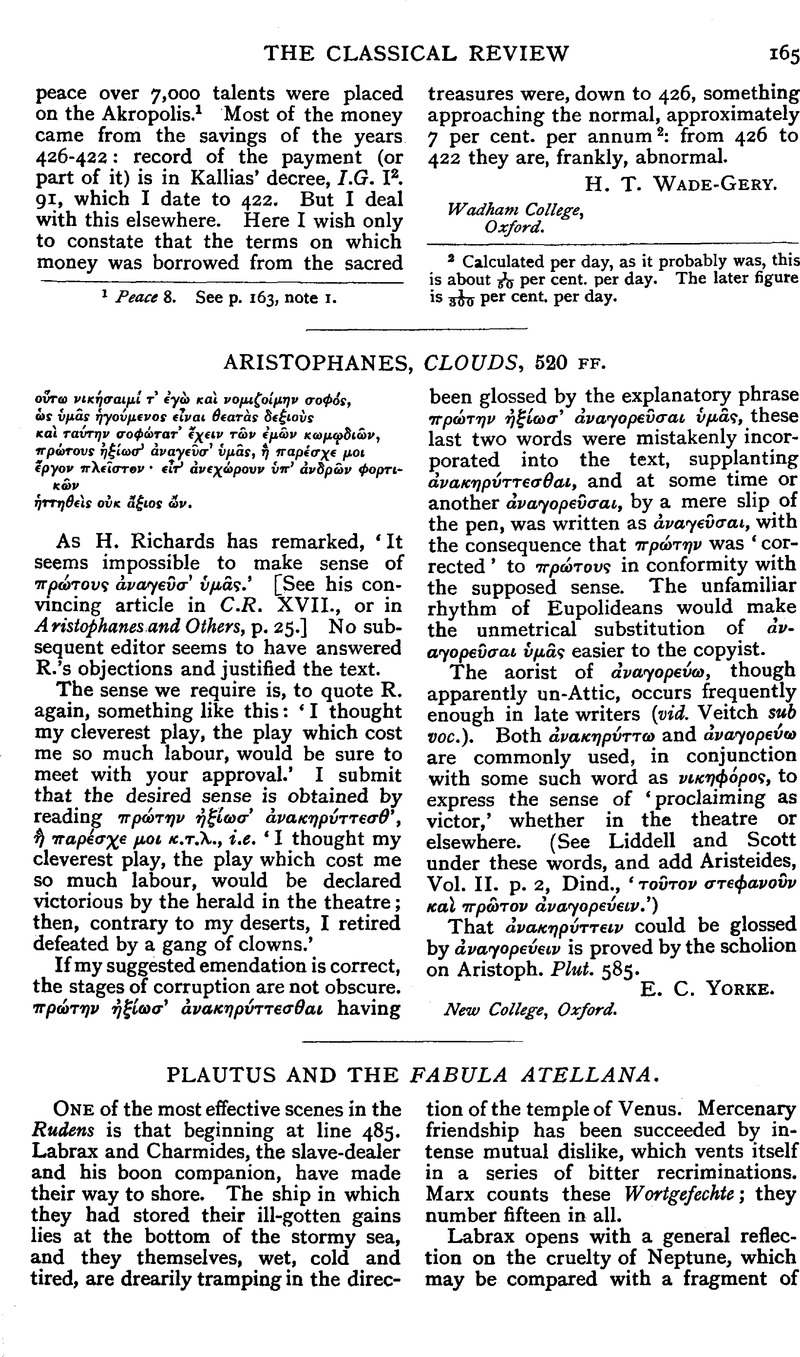Published online by Cambridge University Press: 27 October 2009

page 166 note 1 Cases—if any there be—where Plautus has simply failed to reproduce a Greek pun must necessarily escape certain detection; though we may amuse ourselves by supposing that e.g. a rather pointless remark such as Men. 59, ei liberorum, nisi diuitiae, nihil erat, was made more effective in the Greek by a contrast between τέκος and τόκος.
page 167 note 1 For other examples of this form of jest, v. Men. 654, where the repetition of tu reminds Peniculus of the owl, and Cas. 523–4, where the military phrase cum cibo cum quiqui is compared to the song of the blackbird.
page 167 note 2 To take tricae in the sense of ‘complicated intrigues’ (Schanz, Gesch., p. 249) seems inconsistent with the known shortness of these pieces (Atellaniolae, Fronto, p. 34 N.), the small number of characters, and the general crudity characteristic of this dramatic genre.
page 167 note 3 For examples of the praeter expectationem jest in the Atellanes of Novius, v. Cic. de Or. II. 63, 255 and 70, 285. Word-play was so much a feature of the Atellanes of Pomponius that, according to Seneca (Contr. 7. 3.9), Cicero derived the habit from him.